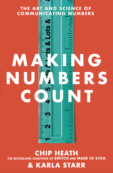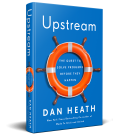I loved this story sent in by Lila M and got her permission to post it here.
My six year old son, who just started first grade, was having a bit of trouble with math – his teacher had given out a set of (rather complicated, in my opinion) problems, where the kids had to figure out the missing number: 2 + X = 5; 3 + X = 7, etc. He was having a hard time conceptualizing the whole thing, and I was having a hard time explaining it to him.
After several frustrating minutes, which ended with him throwing the book down and whining, “I can’t do this!”, I suddenly remembered: make it concrete! I asked: “Imagine you have two candies, but you really want seven. How many do you need to get?” He looked at me with a “no duh” expression on his face and said, “five, of course”. And so it went.
Several days later, we sat down to do a page of homework, and he was whizzing right through it, no trouble at all. I asked him what had happened, why he suddenly found it so easy.
“I’m thinking of candies, Mommy.”
Perfect use of concreteness. (And as a side note, who knew 6 year-olds were doing algebra these days?)



